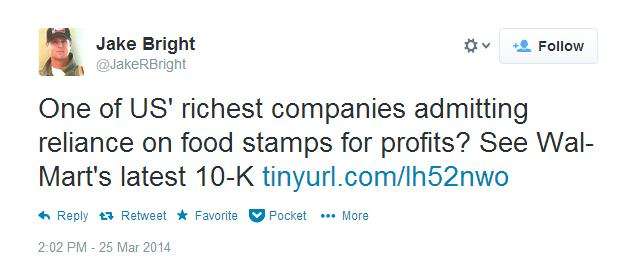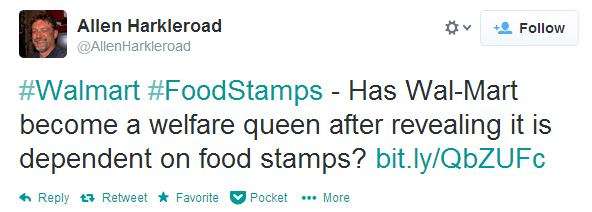Walmart Profits off Food Stamp Recipients—Who Cares?

Last Friday, Walmart filed an annual report with the U.S. Securities and Exchange Commission. On a list of the many factors that could hurt the company financially—federal interest rate changes, natural disasters, cyberattacks, untimely trendspotting—Walmart also included "changes in the amount of payments" made under the federal Supplemental Nutrition Assistance Program (SNAP) and other public assistance programs.
This seems relatively reasonable and noncontroversial, no? Walmart is known for having low prices and catering to a low-income crowd. Some low-income families rely on SNAP benefits, aka food stamps, to buy their groceries. Drastic cuts to the SNAP program might result in poor families buying less food and, therefore, spending less at Walmart. Walmart is a for-profit company, and therefore things that decrease profits are viewed as risks.


And, yet, some folks are trying to frame Walmart's realistic assessment of its customer base and liabilities as an admission of some sort of nefarious strategy. It's very odd. Food stamp users have to shop somewhere, and Walmart is often cheaper than other grocery stores and has more (and healthier) options than the local bodega or 7-Eleven.


I suppose the animosity shouldn't be surprising—Walmart can do no right in some eyes—but that Walmart is an affordable and accessible option for many on food stamps seems like a benefit to me, not a bug. If there is cause to be upset at here, it's the fact that so many Americans are unemployed, living in poverty, and forced to rely on food stamps in the first place. It is not the fact that a company provides them with a place to buy affordable food (no matter how much you might personally not like that company).


Show Comments (114)